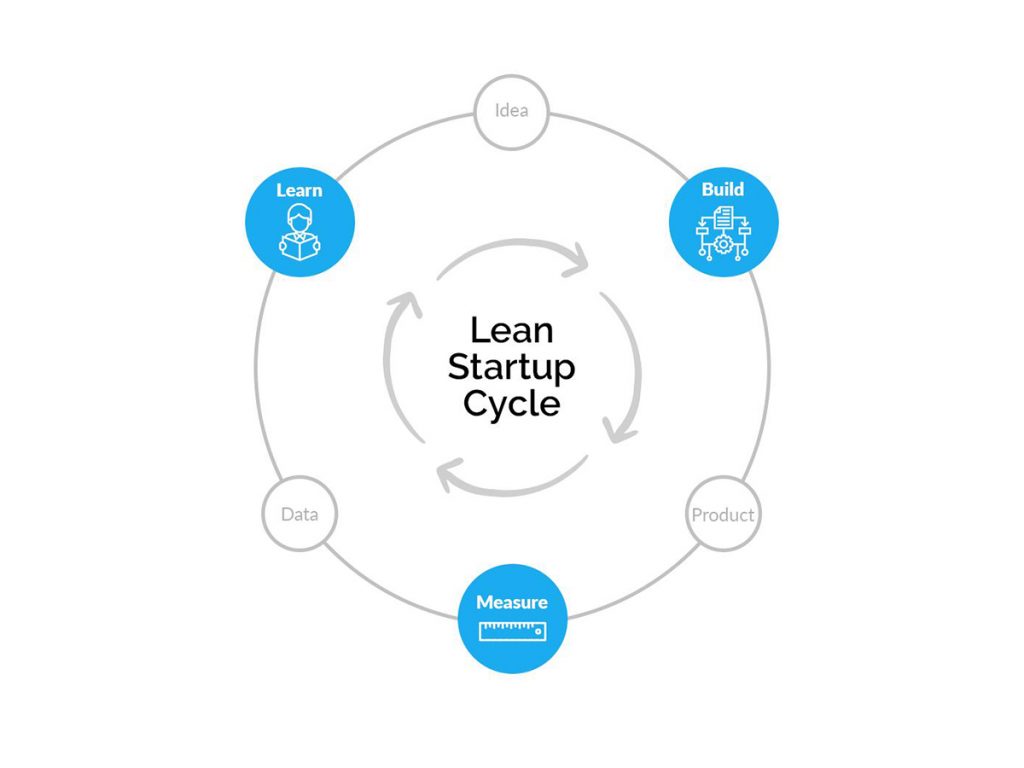
When embarking on an entrepreneurial journey, one of the most important questions to answer is how sustainable is the business model? If statistics are to be believed, most new startups fail at a startlingly high rate and one reason that clearly stands out is the failure to determine whether the product being developed caters to the needs of the market. Commonly, most startups tend to follow the conventional model of creating a business plan, approaching investors for raising funds, building a product and then finally introducing it in the market. This entire process may take years to finally get the product in the market and then tirelessly the selling starts with no guarantee if the product fits the market needs and if it will be received well by the customers.
What is a Lean Startup?
In contrast to the traditional approach, a countervailing method has emerged, the brainchild of Eric Ries known as the Lean Startup methodology. As per the lean startup definition, it is a technical concept applicable in modern-day business. It will help startups formulate strategies to save money and time. Ries came up with this fabulous idea after taking lessons from his everyday life. He understood that giving your heart and soul into developing a business will no longer help in the current era and believed that practical experiments could give more fruitful results. Though we have touched briefly on the workings of the lean startup, yet to know more you can refer to the books of Eric Ries and gain practical experience through interaction and discussions with mentors on coffeemug.ai.
The workings of a Lean Startup explained
The lean startup works on the concept of working smarter and not harder by eliminating a certain level of uncertainty to achieve sustainable growth and success. It is based on certain key principles and concepts focusing on a process of trial and error.
Entrepreneurs are present everywhere: The principle of the lean start-up method can be applied to a company of any size because entrepreneurs are present both within small and large organizations.
Entrepreneurial management: With companies following a lean startup method, the processes may not be that organized and streamlined yet the managers need to be able to manage uncertain situations and be able to give their employees the opportunity to learn through trial and error and experiment as much as possible.
Validated learnings: The lean startup methodology regards every action carried out by a startup to be an experiment with the objective of achieving validated learning. This type of method can be further broken down into a couple of steps including:
- Recognizing a problem and trying to find a solution to it or waiting to provide an answer to a particular need.
- Creating an MVP, a minimal viable product also known as a working prototype.
- Getting feedback on whether the product provides the solution to the problem after testing the MVP with the customers. Reiterating the entire process a couple of times till the product is fine tuned to match the expectations of the target market.
Creating an MVP is beneficial for analyzing whether the product caters to the market needs in a real-time learning environment with customers who are actually trying the product and giving their feedback.
Build, Measure and Learn cycle: Unlike the traditional form of doing business, this startup method focuses on building an MVP, taking it to the customers to get feedback and based on customer response, measuring the data to derive insights and accordingly making changes to the product. In this way the build, measure and learn cycle is repeated till the product reaches a level where it fits the market needs and then it becomes imperative for the entrepreneur to scale and grow the business.
Innovative Accounting: The entrepreneurs need to be aware of strategies for measuring progress, establishing milestones and prioritizing work in order to create a sustainable business. It is important for a startup following the lean start-up method to analyze its position and continue to improvise through experiments and accordingly make decisions.
How coffeemug.ai can help you with the lean startup method?
While the startup method may be easy to conceptualize in one broad sentence of listening to what customers want and learning from mistakes, it can be quite a journey when it comes down to actually implementing this entire process. Getting someone to guide you through every stage of the process can be quite beneficial for any startup. A networking platform like coffeemug.ai where you come across professionals and mentors who already have the knowledge and expertise of implementing the lean startup methodology can really go a long way in helping your startup develop a sustainable business model.
FAQs
Q. What are the 3 steps in The Lean Startup?
A. Although the path of all lean start-ups are different, they undergo three stages:
- problem/solution fit
- product/market fit
- growth stage
Q. What is lean startup management?
A. The lean startup technique is a method of running and growing a company or startup by experimenting, testing, and iterating while generating products depending on the results of your tests and feedback.
Q. What is a lean platform?
A. Lean platforms link buyers and sellers of services with the least amount of assets possible.
Q. What is pivot in a lean startup?
A. A pivot is a planned course correction that tests a new basic premise about a product, approach, or growth engine.
